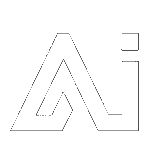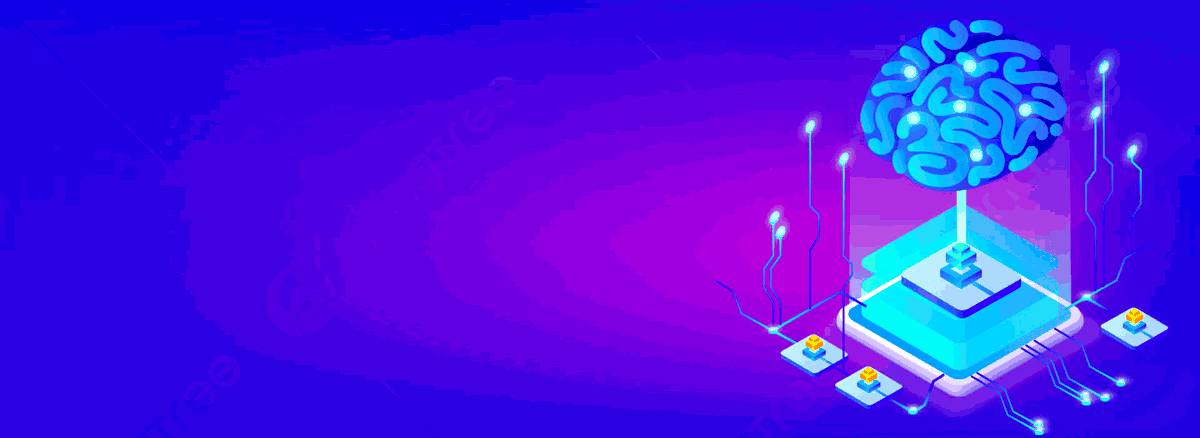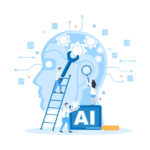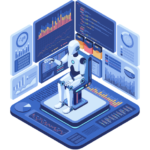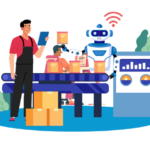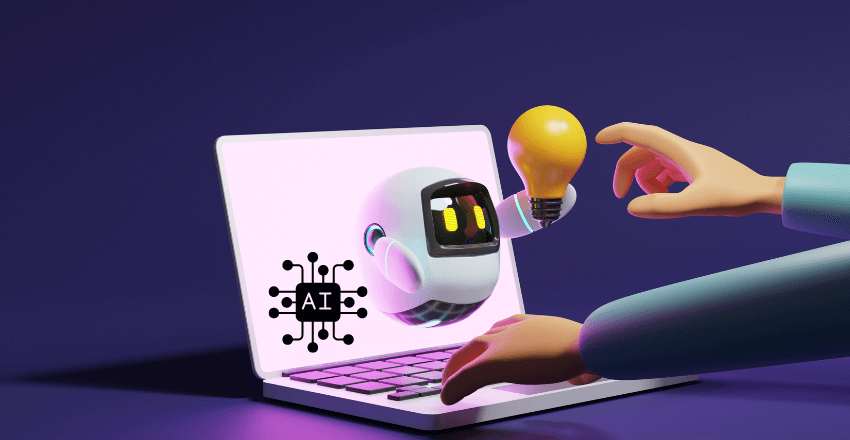
How to Efficiently Manage AI Engineers: Master the art of communication, project management, and team dynamics to drive success in AI development.
Artificial intelligence (AI) has become an increasingly essential part of modern business operations, and managing development and engineering teams working on these projects is more critical than ever. AI development teams require specialized expertise and experience, making it challenging to find and maintain high-quality talent.
Effective management practices are essential to keep these teams running efficiently.
Effective and efficient AI engineer management requires a deep understanding of the unique challenges and opportunities presented by AI development projects. It involves many factors, including team productivity, communication, collaboration, and performance monitoring, to name a few.
Key Strategies for Managing AI Engineers

Managing an AI development team can be challenging, but with the right strategies and approach, you can lead the team to success. As a team leader, it is essential to establish clear goals and expectations for your AI engineers so that everyone is working towards a common objective.
To effectively manage your AI engineers, you will need to provide mentorship and professional development opportunities. Training your team members will help to optimize their performance and make them more productive. It is also important to foster a collaborative and inclusive team culture that encourages knowledge sharing and cross-functional collaboration. Regular team meetings and open communication practices are critical in achieving this.
Establishing Clear Goals and Expectations
As a team leader, it is essential to establish clear goals and expectations for your AI engineers so that everyone is working towards a common objective. Setting specific and measurable goals will help to create a sense of direction and purpose among team members. It will also help you track progress and measure success. Ensure that everyone is aware of your expectations, timelines, and outcomes.
Providing Mentorship and Professional Development Opportunities
AI is a rapidly evolving field, and it is essential to provide mentorship and professional development opportunities to keep your team up-to-date. Providing your team with software development and AI training programs will help to optimize their performance and make them more productive. These programs will keep your team up-to-date with new technologies and techniques as the field evolves.
Fostering a Collaborative and Inclusive Team Culture
Creating a collaborative team culture is important in any field, but it is particularly important in AI development. Encouraging knowledge sharing and cross-functional collaboration will help to generate new ideas and approaches to solve problems. Regular team meetings and open communication practices will also help to establish a sense of camaraderie among team members.
In addition to establishing a collaborative culture, it is essential to encourage diversity and inclusivity in your team. Encouraging diversity will broaden your team’s perspectives and experiences, leading to more innovative ideas and solutions.
Monitoring and Evaluating AI Engineer Performance
Regularly monitoring and evaluating AI engineer performance is important to ensure that your team is efficiently meeting its goals. Setting clear performance metrics, conducting regular performance evaluations, providing constructive feedback, and recognizing and rewarding high-performing team members are all crucial in keeping the team motivated and productive.
Hiring and Onboarding AI Engineers

When it comes to building a successful AI development team, hiring and onboarding are critical steps. Getting the right team members with the necessary skills and experience can make all the difference in the success of the team. Here are some key strategies for hiring and onboarding AI engineers:
Identifying the Necessary Skills and Experience
The first step in hiring AI developers is to identify the necessary skills and experience required for the role. This involves carefully defining the job description and requirements, including specific programming languages, machine learning techniques, and practical experience with AI systems.
It’s also important to take into account the unique qualities of your organization and the team, and find candidates who fit well with the company culture and values.
Conducting Effective Interviews
Once you’ve identified potential candidates, the next step is to conduct effective interviews. This involves asking targeted questions that assess the candidate’s technical abilities, problem-solving skills, and overall fit with the team.
It can also be helpful to have multiple team members involved in the interview process, allowing for a diverse set of perspectives and opinions.
Creating a Comprehensive Onboarding Program
Once you’ve hired new AI engineers, it’s important to have a robust onboarding program in place to ensure a smooth transition into the team. This can include providing introductory training on the company’s systems and tools, assigning a mentor to guide the new hire, and creating a detailed plan for their first few weeks on the job.
It’s also important to be transparent about performance expectations and provide ongoing feedback to help new hires grow and develop in their roles.
Integrating New Hires into the Existing Team
Finally, integrating new hires into the existing team is critical for long-term success. This involves fostering a collaborative and inclusive team culture, providing opportunities for team members to get to know each other and work together on projects, and creating a sense of shared ownership and responsibility for the team’s success.
By following these strategies for hiring and onboarding AI engineers, you can build a strong and effective team that drives innovation and achieves success.
Establishing Clear Communication Channels
Effective communication is essential for managing AI engineers. Transparent communication practices can improve collaboration and limit misunderstandings. Regular team meetings are a great way to stay up-to-date on project progress and ensure that everyone is on the same page. Utilizing collaboration tools can also improve communication, such as video conferencing software or project management systems that allow for real-time updates.
Encouraging and fostering a culture of open and honest communication can also improve trust and collaboration within the team. By promoting knowledge sharing and cross-functional collaboration, team members can learn from one another and pool resources to tackle challenges more effectively.
| Communication Practices | Description |
|---|---|
| Regular Team Meetings | Schedule regular meetings to discuss project updates and tasks. Use it as an opportunity to gather feedback and address any issues or concerns. |
| Collaboration Tools | Utilize project management systems, video conferencing software, and other collaboration tools to facilitate communication and updates. |
| Transparent Communication | Foster a culture of open and honest communication to promote trust and collaboration within the team. |
By prioritizing clear communication channels and transparent communication practices, AI engineering teams can help ensure that projects stay on track and deliver the expected results.
Providing Resources and Support
One of the key factors in efficiently managing AI engineers is providing them with the necessary resources and support to optimize their productivity. This includes access to cutting-edge AI development tools, technical support, and ongoing training and development opportunities.
When it comes to AI engineer resources, it’s important to stay up-to-date with the latest developments in the field. This may include investing in hardware and software that allows for faster and more efficient AI development, as well as providing access to online resources and communities where engineers can share knowledge and collaborate with their peers.
In addition to technical resources, it’s crucial to provide adequate technical support to the AI team. This can range from IT support for hardware issues to specialized support for more complex AI development challenges. Having a dedicated technical support team or individual can help ensure that AI engineers are able to work efficiently and effectively without getting bogged down by technical issues.
Finally, ongoing training and development opportunities can help keep AI engineers at the forefront of new developments in the field, as well as support their career growth and development. This may include internal training programs, external workshops and conferences, as well as mentoring and coaching to help engineers improve their skills and take on new challenges.
Encouraging Innovation and Experimentation
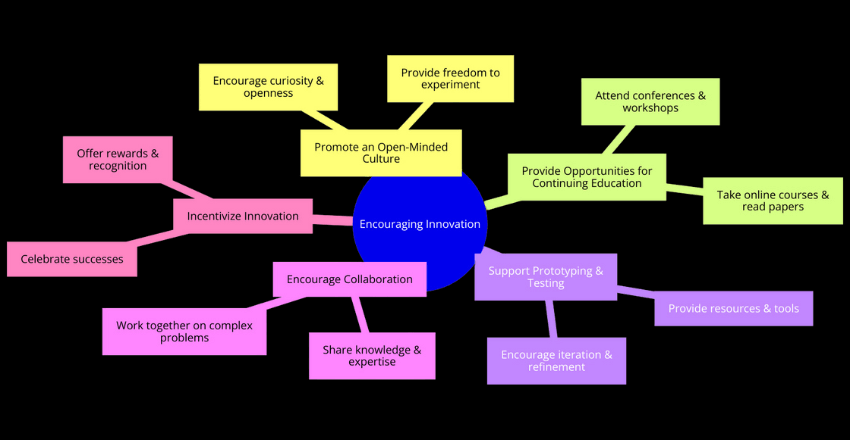
Innovation and experimentation are essential components of AI development, allowing engineers to explore new approaches and techniques for solving complex problems. Fostering a culture of creativity and innovation can lead to breakthrough discoveries and advancements in AI technology.
Here are some strategies for encouraging innovation and experimentation in your AI engineering team:
- Promote an open-minded culture: Encourage your team to be curious and open-minded about exploring new ideas and approaches. Provide them with the freedom to experiment and take risks.
- Provide opportunities for continuing education: Offer your team the chance to attend conferences, workshops, and training sessions to expand their knowledge and skills. Encourage them to take online courses, read academic papers, and participate in hackathons.
- Support prototyping and testing: Empower your team to prototype and test new ideas. Provide the resources and tools necessary to do so, and encourage them to iterate and refine their prototypes until they are successful.
- Encourage collaboration: Foster a culture of collaboration within your team and with other teams. Encourage your engineers to share their knowledge and expertise with each other and to work together to solve complex problems.
- Incentivize innovation: Offer rewards and recognition for innovative ideas and successful experimentation. Celebrate your team’s successes and encourage them to continue pushing the boundaries of AI technology.
By promoting a culture of innovation and experimentation, your AI engineering team can stay ahead of the curve and continue to make significant contributions to the field of AI.
Balancing Workload and Priorities
One of the biggest challenges in managing AI engineers is balancing workload and priorities. It’s important to ensure that each team member has a manageable workload and that tasks are allocated based on their skills and expertise.
One strategy for managing workload is to prioritize tasks based on their impact and urgency. This helps to ensure that the most critical tasks are completed first and prevents team members from getting bogged down with less important tasks.
| Task | Priority |
|---|---|
| Developing a new AI algorithm | High |
| Updating documentation | Low |
| Conducting a code review | Medium |
Another approach is to optimize the team’s productivity by using tools and technologies that can automate certain tasks and streamline workflows. This can include using collaboration tools to facilitate communication, automating testing and deployment processes, and utilizing project management software to track progress and identify bottlenecks.
It’s also important to ensure that team members maintain a healthy work-life balance. This means avoiding overloading team members with too many tasks or asking them to work long hours on a regular basis. Encouraging breaks and allowing team members to take time off when needed can help to prevent burnout and maintain a productive, motivated team.
Building Trust and Collaboration within the Team
One of the essential components of efficiently managing AI engineers is fostering trust and collaboration. When team members trust one another, they are more likely to communicate effectively and work together seamlessly. Therefore, promoting a supportive and inclusive environment is crucial in building trust.
Encourage knowledge sharing and cross-functional collaboration within the team by providing opportunities for team-building activities and training. This will not only increase the level of trust within the team but also provide valuable opportunities for learning and professional development.
Fostering Collaboration Among AI Engineers
Collaboration among AI engineers is essential for the success of any AI development project. To promote collaboration, establish a culture of teamwork by encouraging open communication and embracing diverse perspectives. This will help team members build strong working relationships, leading to better outcomes and higher quality work.
Utilize collaborative tools such as virtual whiteboards, document sharing platforms, and project management software to ensure that all team members can work together remotely or in-person efficiently. Additionally, holding regular team meetings and brainstorming sessions can also help foster a collaborative environment.
Trust in AI Teams
Building trust among team members is vital for effective collaboration. To establish trust, it is crucial to create an environment where open and honest communication is encouraged. This can be achieved by providing opportunities for team members to share their ideas and opinions without fear of judgment or criticism, establishing clear expectations around performance and behavior, and resolving conflicts constructively.
By building trust within your AI engineering team, you can create an environment of collaboration and teamwork that will lead to better outcomes and higher-quality work. This will, in turn, drive team success and create a culture of excellence that will attract top talent to your organization.
Performance Monitoring and Feedback

In order to ensure the success of AI development teams, it is essential to have a system in place for monitoring performance and providing feedback. This helps to identify areas of strength and improvement, and ensures that the team is constantly moving forward towards its goals. Here are some key strategies for effective performance monitoring and feedback in AI development:
Setting Clear Performance Metrics
Before any monitoring or feedback can take place, it is important to establish clear performance metrics that align with the team’s goals. These metrics should be specific, measurable, and achievable, and should be communicated clearly to all team members. Regular progress updates should also be provided to keep everyone on track.
Regular Performance Evaluations
Regular performance evaluations are an important part of performance monitoring in AI development. These evaluations should be conducted on a regular basis, such as quarterly or annually, and should involve both self-assessment and feedback from team leaders and colleagues. This helps to identify areas of strength and weakness, and provides an opportunity for team members to discuss their goals and development needs.
Providing Constructive Feedback
Constructive feedback is essential for continuous improvement in AI development teams. This feedback should be specific, timely, and actionable, and should be delivered in a supportive and respectful manner. It is important to focus on the behavior or outcome being evaluated, rather than the person, and to provide concrete suggestions for improvement. Regular feedback sessions can also be used to help team members identify their strengths and weaknesses, and to develop plans for growth and development.
Recognizing and Rewarding High-Performing Team Members
Recognizing and rewarding high-performing team members is an important part of performance monitoring and feedback in AI development. This helps to motivate team members and foster a positive team culture, and can be done through a variety of means, such as bonuses, promotions, or public recognition. It is important to ensure that rewards are tied to specific performance metrics and are transparent and fair.
By implementing effective performance monitoring and feedback strategies, AI development teams can ensure that they are constantly moving forward towards their goals, and that team members are developing and growing in their roles. This helps to ensure not only the success of the team, but also the success of the organization as a whole.
Continuous Improvement and Growth
Effective management of AI engineers requires a commitment to continuous improvement and growth. As technology evolves and new innovation emerges, it is crucial for AI teams to stay up-to-date and adapt to changing demands. This includes investing in continuous learning opportunities for AI engineers, promoting AI team development, and fostering AI talent growth.
Continuous Learning for AI Engineers
AI engineering is a dynamic field that demands continuous learning and self-improvement. Providing ongoing learning opportunities for AI engineers, such as attending conferences, workshops, and training programs, can help to keep the team abreast of the latest trends and best practices. Encouraging AI engineers to learn and adopt new skills and technologies can also help to optimize productivity and drive innovation within the team.
AI Team Development
Building a strong and cohesive AI development team is essential for achieving successful outcomes. Investing in AI team development can help to enhance collaboration, build trust and foster a culture of innovation. Encouraging cross-functional collaboration and interdisciplinary teams can also help to streamline workflows and facilitate knowledge sharing, leading to increased productivity and more successful outcomes.
Fostering AI Talent Growth
AI engineers are in high demand, and attracting and retaining top talent is critical for the success of any AI development team. Fostering AI talent growth through mentorship programs, career development opportunities, and recognition programs can help to create a supportive and inclusive environment that encourages excellence. Celebrating successes and recognizing achievements can also help to promote a positive team culture and motivate AI engineers to continuously strive for improvement.
External Resources
https://www.criteriacorp.com/blog/5-benefits-of-regular-performance-reviews
https://online.champlain.edu/blog/giving-constructive-feedback
FAQ
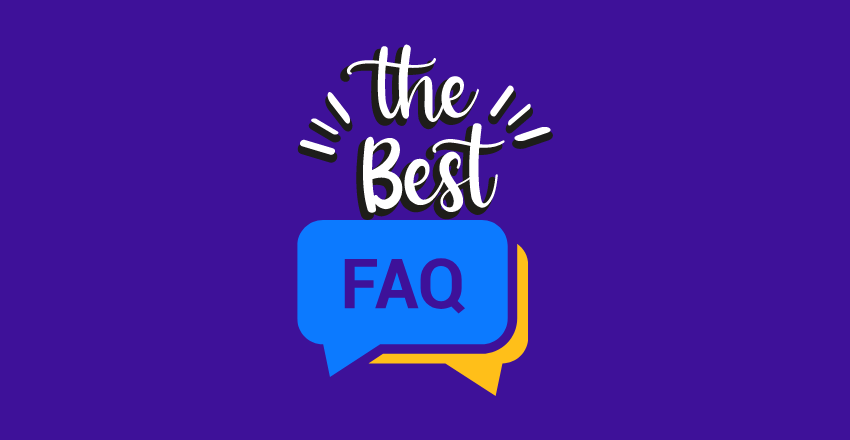
FAQ 1: What is the best way to keep AI engineers motivated and engaged?
Answer:
Motivation for AI engineers often comes from challenging projects, learning opportunities, and recognition. Implement a system for setting clear, achievable goals and regular feedback. Here’s an example of setting up a simple goal-tracking and feedback mechanism using a Python script:
engineers_goals = {
'engineer1': {'goal': 'Improve model accuracy by 5%', 'progress': 0},
'engineer2': {'goal': 'Reduce data processing time by 10%', 'progress': 0},
}
def update_progress(engineer, progress):
engineers_goals[engineer]['progress'] = progress
print(f"Updated {engineer}'s progress to {progress}% towards their goal.")
def give_feedback(engineer, feedback):
print(f"Feedback for {engineer}: {feedback}")
# Example usage
update_progress('engineer1', 3)
give_feedback('engineer1', 'Great job on improving the model accuracy! Keep pushing for the 5%.')This script could be a part of a more extensive system where goals and feedback are tracked and managed. Regularly updating progress and providing constructive feedback can significantly boost motivation.
FAQ 2: How can I facilitate effective communication among AI engineers?
Answer:
Effective communication among AI engineers can be facilitated by using collaborative tools and regular meetings to discuss progress, challenges, and solutions. Implementing a code review system using Git can promote knowledge sharing and collaborative problem-solving:
# Example Git commands for initiating code reviews
git checkout -b feature/your-new-feature
# Make changes and commit
git commit -am "Add some feature"
git push origin feature/your-new-feature
# Create a pull request for team reviewEncourage your team to use pull requests for new features or fixes, ensuring everyone has the opportunity to review and comment on the code. This process not only improves code quality but also fosters a culture of collaboration and learning.
FAQ 3: What strategies can I use to manage remote AI engineering teams effectively?
Answer:
Managing remote AI engineering teams effectively requires clear communication, regular check-ins, and access to the right tools. Implement a daily stand-up meeting via video call to keep everyone aligned. Here’s a simple Python script to automate meeting reminders:
from datetime import datetime
import smtplib
def send_reminder(email_address, meeting_time):
server = smtplib.SMTP('smtp.example.com', 587)
server.starttls()
server.login('your_email@example.com', 'yourpassword')
message = f"Subject: Daily Stand-up Reminder\n\nDon't forget our daily stand-up at {meeting_time}."
server.sendmail('your_email@example.com', email_address, message)
server.quit()
# Example usage
send_reminder('engineer@example.com', '10:00 AM')This script sends an email reminder for the daily stand-up meeting. Tools like Slack or Microsoft Teams can also be configured for automated reminders. Regular, structured meetings alongside casual check-ins can help maintain team cohesion and ensure project milestones are met, even when the team is distributed across different locations.
Jane Watson is a seasoned expert in AI development and a prominent author for the “Hire AI Developer” blog. With over a decade of experience in the field, Jane has established herself as a leading authority in AI app and website development, as well as AI backend integrations. Her expertise extends to managing dedicated development teams, including AI developers, Machine Learning (ML) specialists, and other supporting roles such as QA and product managers. Jane’s primary focus is on providing professional and experienced English-speaking AI developers to companies in the USA, Canada, and the UK.
Jane’s journey with AI began during her time at Duke University, where she pursued her studies in computer science. Her passion for AI grew exponentially as she delved into the intricacies of the subject. Over the years, she honed her skills and gained invaluable experience working with renowned companies such as Activision and the NSA. These experiences allowed her to master the art of integrating existing systems with AI APIs, solidifying her reputation as a versatile and resourceful AI professional.
Currently residing in the vibrant city of Los Angeles, Jane finds solace in her role as an author and developer. Outside of her professional pursuits, she cherishes the time spent with her two daughters, exploring the beautiful hills surrounding the city. Jane’s dedication to the advancement of AI technology, combined with her wealth of knowledge and experience, makes her an invaluable asset to the “Hire AI Developer” team and a trusted resource for readers seeking insights into the world of AI.
